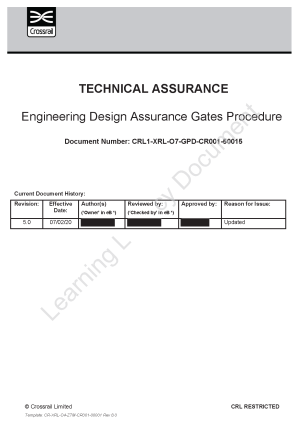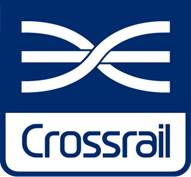An essential part of the Crossrail design review process involved the completion of both single disciplinary and inter-disciplinary design reviews. This provided an opportunity for interfacing Framework Design Consultants (FDCs), third parties, infrastructure maintainers as well as the Chief Engineer’s Group to scrutinise developing designs.
The Gates process was developed to supplement this and provide progressive assurance throughout the complex design stages to ensure that the objectives were achieved and that the project could progress successfully to the next stage.
All designs were subject to a three-stage Gate review:
• Gate 1: Final scheme design – design 20% complete – RIBA stages C and D
• Gate 2: Intermediate design (single option) – design 60% complete – RIBA stage E
• Gate 3: Issue for construction (IFC) – RIBA stage F (detailed design, tender documents, production information – 100% design completion).
The gates process was not a direct review of the design but a review of evidence of progress and completion of the design and associated assurance activities.
For each review, design teams were required to present evidence to the gates’ chair and panel of discipline leads against twelve gates criteria as follows: meeting project requirements, compliance with the Project Development Agreement (PDA) and Crossrail Act 2008, conformance to standards, design for safety, affordability, management of risks, coordination, constructability, overall quality, project schedule, gauging acceptance and risk assessment.
Further to presentation of the design, gates ‘conditions’ were raised that were required to be addressed before progressing to the next Gate. To allow the issue of the (IFC) construction drawings to site, a Gate 3 pass certificate was required.
In some cases, Post Gate 3 reviews were required when significant design changes were identified post IFC that required revalidation of the design.


